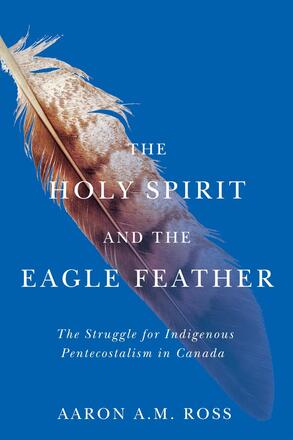
The Holy Spirit and the Eagle Feather
The Struggle for Indigenous Pentecostalism in Canada
A history of Indigenous Pentecostalism in Canada, through the experience of the Northland Mission.
La description
Pentecostalism is one of the fastest-growing religious movements in the world. In Canada, it is the most rapidly growing Christian group among Indigenous people, with approximately one in ten Pentecostals in the country being Indigenous. Pentecostalism has become a religious force in many Indigenous communities, where congregations are most often led by Indigenous ministers – an achievement that took many decades.
The Holy Spirit and the Eagle Feather traces the development of Indigenous Pentecostalism in Canada. Exploring the history of twentieth-century missionization, with particular attention to the Pentecostal Assemblies of Canada’s Northland Mission, founded in 1943, Aaron Ross shows how the denomination’s Euro-Canadian leaders, who believed themselves to be supporters of Indigenous-led churches, struggled to relinquish control of mission management and finances. Drawing on interviews with contemporary figures in the movement, he describes how Indigenous Pentecostals would come to challenge the mission’s eurocentrism over decades, eventually entering positions of leadership in the church. This process required them to confront the painful vestiges of colonialism and to grapple with the different philosophies and theologies of Pentecostalism and Indigenous traditional spiritualities. In doing so they indigenized the movement and forged a new identity, as Indigenous and Pentecostal.
Indigenous Pentecostals now occupy key roles in the church and serve as political, cultural, and economic leaders in their communities. The Holy Spirit and the Eagle Feather tells the story of how they overcame the church’s colonial impulses to become religious leaders, as well as agents for decolonization and reconciliation.
Reviews
“The Holy Spirit and the Eagle Feather is a well-researched historical treatise of Pentecostalism among First Peoples, Nations, and bands in Canada. Once you have begun reading this book, you will be unable to put it down! The author’s ‘quiet voice’ has relevance and immediacy to the challenges of Canada. Truth never changes, but it must be packaged culturally and generationally to make it relevant with knowledge that is consistent with reality. Combining insight and foresight, Aaron Ross not only perceives tendencies common to cross-cultural workers, he is able to pinpoint those meanings for the reader. His work will retain a lasting validity that can be studied, and restudied.” Rev. John E. Thohate Maracle (Mohawk Wolf Clan), Former Chief of the Native American Fellowship of the Assemblies of God USA
“The Holy Spirit and the Eagle Feather is an impressively thorough history that importantly fills out the historical record on the spread of Pentecostalism through local Indigenous communities in northern Ontario while simultaneously connecting the local histories to a larger religious shift across North America. The book is well written, engaging, and filled with information only recorded in hard-to-access archives, until now.” Kimberly Marshall, University of Oklahoma and author of Upward, Not Sunwise: Resonant Rupture in Navajo Neo-Pentecostalism
“Ross very skillfully dissects and explains the complex and changing relationship between Canadian Pentecostal settlers and Indigenous peoples. I cannot recommend this book too highly. … The Holy Spirit and the Eagle Feather successfully answers Michael Wilkinson’s tireless call for Canadian Pentecostal scholars to shift their insular emphasis from the well-travelled areas of settler theology, education and history to the less-visited corners, closets and maybe even cellars of the Canadian Pentecostal experience.” Faith Today
"A book like this was long overdue! It is a challenge to do justice to a review of The Holy Spirit and the Eagle Feather because of the important contribution of its historical value and its critical interrogation of the legacy of colonization in the missionary work of the Pentecostal Assemblies of Canada (PAOC) with Indigenous peoples. At heart, this book celebrates the uniqueness of Indigenous Pentecostalism, a Pentecostalism that remains deeply Indigenous in its character, even as it wrestles with the colonial legacy of Pentecostal missions to Indigenous peoples." Journal of Religious History
"The Holy Spirit and the Eagle Feather makes crucial contributions to our knowledge of the Canadian experience, provides an engaging narrative account, and offers deft refinements for our understanding of how to methodologically interpret the Euro-Christian–Indigenous encounter. It should be of pressing interest for any scholars of Canadian religious history, scholars of Pentecostalism, and anyone interested in Indigenous Christianity." Studies in Religion / Sciences Religieuses